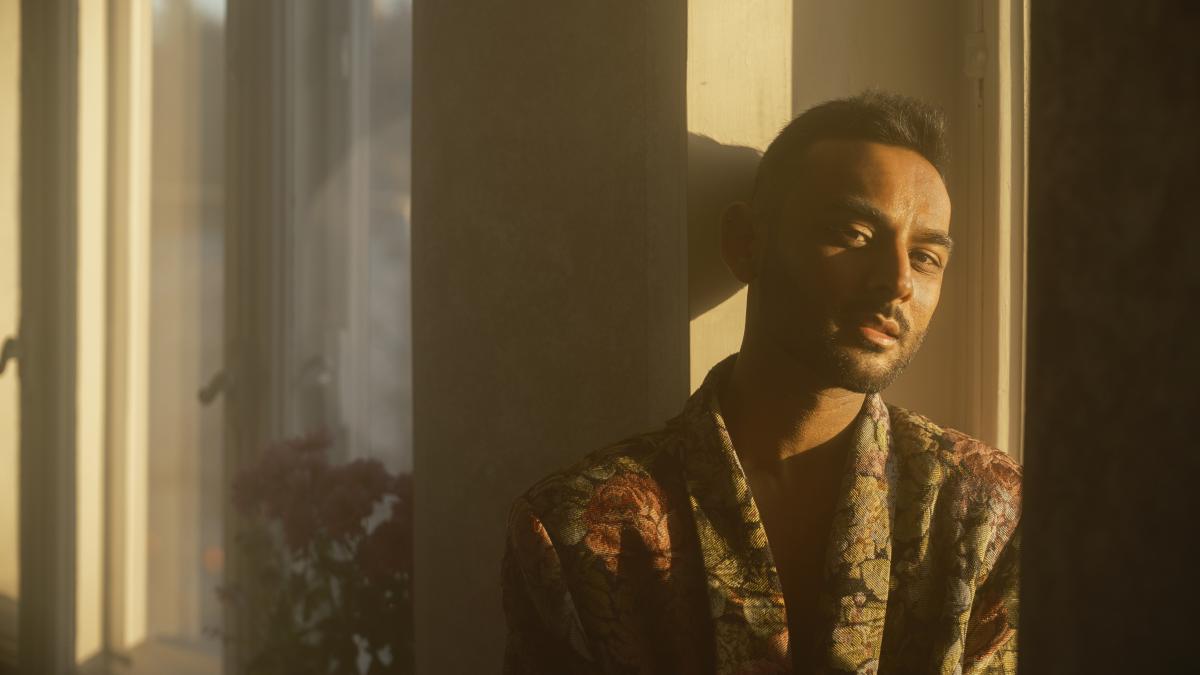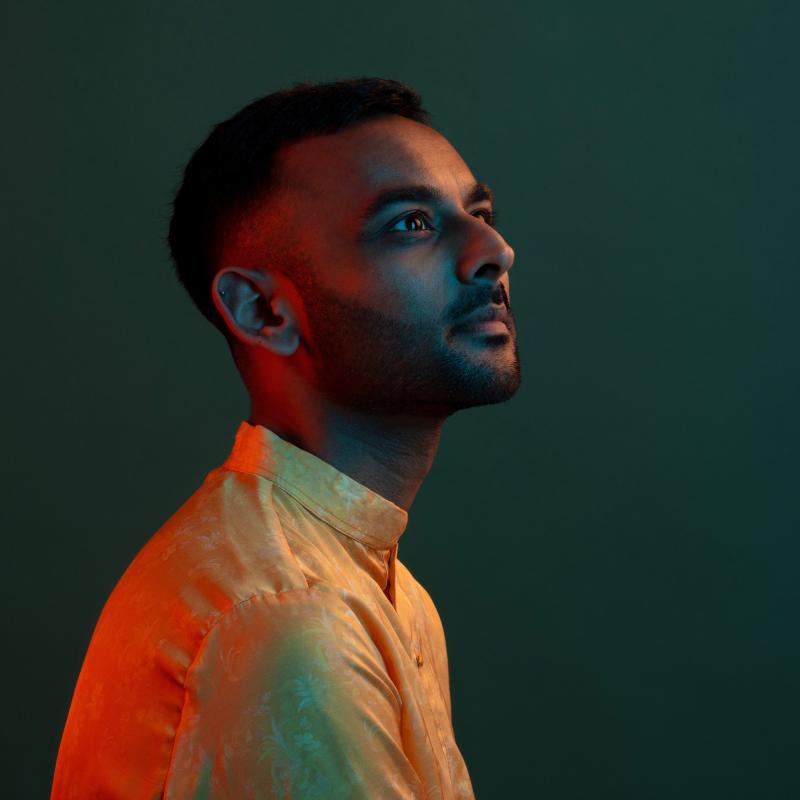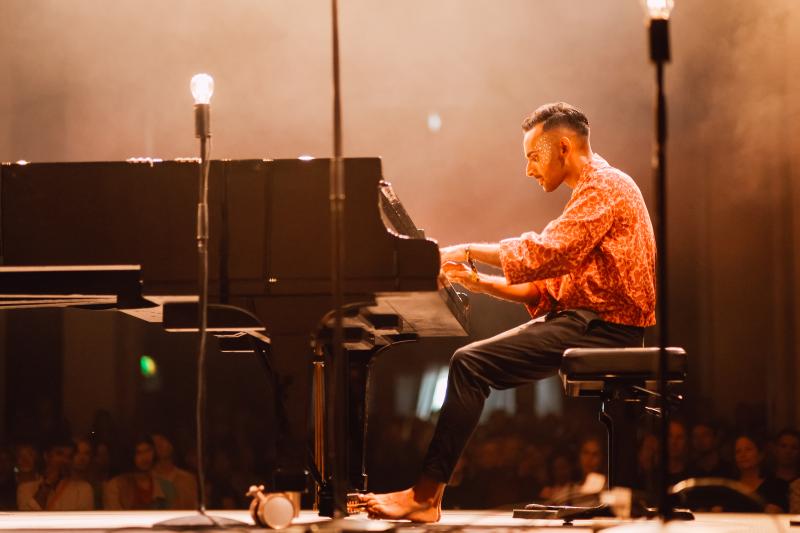Keval Shah: With technical prowess comes liberation
For the final chapter of our three-part series, pianist Keval Shah takes us back to the roots of his own musical journey – and reflects on the diversified skills musicians must master in a changing world.

Can you take us back to the moment when you first fell in love with classical music?
It was actually not piano music, it was singing in a choir. This really reminds me that singing and vocal music have been at the complete centre of my world from the beginning. In a way, it’s no surprise that I fell into lied because my initial love was not a pianistic one, it was a language one, a vocal one.
It was Mozart’s Vespers [Solemn Vespers for a Confessor] and in particular the “Laudate Dominum” that blew me away. It was just magic.
20 years have passed and this music still has the same light for me. It’s a kind of light that I can’t find anywhere else in my life.
There’s so much music I love from all over the world and from all different kinds of styles, but that particular experience, listening to Mozart, it satisfies something in me that nothing else will touch. It doesn’t matter what it is, there’s something about that music, which I just can’t ever get enough of.
Twenty years have passed, but that Mozart still gives me the same feeling – a light I can’t find anywhere else in my life.
My world is infinitely enriched by having the possibility to live with that music. But I don’t feel any need to say it’s the best thing ever or that it’s the peak of humanity or of human creativity etc. I don’t need to entertain this kind of language because it’s not necessary to qualify my love for this music by making a statement about its supposed ‘superiority’.
I guess what I love about all of the music that I really adore is that it’s music which resists falling into any one camp. The artists that I’m most inspired by, the music that I love the most, it so often seems to sit somewhere between worlds. It can’t be forced into any one box – even Mozart can’t be pinned down to being one thing. It always seems to have influence from multiple places.
Could you share more about your emotional journey of becoming a professional musician?
I’ve always been very aware of my emotional world because my parents were super healthy about this as we were growing up. We had dinner every evening as a family at the table and we would sit and talk about our feelings. It was never just: “how was your day?” It was always: “how are you feeling about things?”
I wonder if my parents were like that with us because they didn’t have that with their own families in their childhood. They were close to their families, but parenting in the 1960s was not the same. Especially in the Indian communities of East Africa where my parents were born, it was a different kind of culture!
My parents wanted to be close to their children. I still share everything with my parents and there’s nothing they don’t know about my life.
That meant that I always felt my emotions were quite close to the surface. At the same time, when I went into music education, into the conservatoire environment and to university to study classical music, I started, without realising it, to completely separate my emotions from my musical work.
I internalised very strongly this feeling that who I was, particularly as an Indian person, was not what I was supposed to be in order to be a Western classical musician. That’s not because anyone told me that explicitly, although there were a few people that said super racist things! It was more that I didn’t see anybody else that looked like me anywhere – not in the audience, not on the stage, not in the school – nobody.
The only emotions that were close to me as a student were passion for the music and anxiety about becoming the right kind of person. I was working so hard from a place of fear.
I was practicing out of fear that if I stopped for even a moment, the whole thing would fall apart.
I didn’t realise it at the time, but I was practicing many hours a day out of fear that if I didn’t practice that many hours, the process of becoming that particular kind of person would crumble. It was such a fragile process. I felt I had to constantly be doing it, because if I stopped for a second, the whole thing would be undone.
A few years ago, I had therapy with this amazing therapist in London who works particularly with performing artists, and I started to look back and understand what had been happening all this time. Over the course of that year, I was able to reconcile the challenges of losing my identity along the way and bringing it back, returning to the piano with a sense of my original emotion, which was just love for the music.
My first contact with classical music was a moment that created such love in my body. It was the Mozart piece I mentioned earlier, one I just adored. But in the process of becoming a musician professionally, I let that love be overwhelmed by other kinds of emotions. And now that I’ve gone through that, understood it and untangled all that stuff, I feel that I’m back to where I started.
I now have all the technical and musical skill, I hope. But I’m back to my very original relationship with music, which was just like, “wow, I love this”. I feel much happier working from a place of love than from a place of fear.
What do you think musicians need in their skillset today?
First and foremost, musicians need extraordinary technical and musical skill. That hasn’t changed and can’t change, because without a technical and musical foundation, you have no freedom to create and realise your ideas.
You need to have a thorough grounding in the theoretical, technical, physical and musical elements of whatever world you want to work in. Beyond that, I think musicians today, possibly more than in the past, need to be able to articulate their ideas.
They need to be able to explain the music they make and why they make it. This is because we are living in a time where there is so much available to people and one of the challenges of being a performing artist is, quite frankly, getting recognised, getting your work seen and taken by promoters, concert halls and record labels etc.
Many people are technically and musically very gifted and have trained and developed those skills. But we need people with imagination, with curiosity for the possibilities of music-making – perhaps with no answers.
I have no answers myself, no certainties on anything. But having a curiosity for searching for musical possibilities, for how you might programme things in ways which illuminate new angles or shed new light on a piece of music – that I think can inspire audiences. It can make people listen in a more concentrated way.
At the most basic level, you need to be good and you need to love what you’re doing, and then just keep going. And be happy to accept that there are no guarantees – in music, or in life.
We also have to distinguish between a skillset for a particular kind of professional life – and a skillset as a musician and a human.
If you want to work in an orchestra, you’re going to need certain kinds of skills. If you’re going to work as an opera singer rather than a concert singer and you want to spend your life just on the stage doing solo roles, you need certain skills. If you want to just sing in recital, which is a very difficult thing to do in terms of making enough money, then you need other skills.
If you want to be a creative artist – if you want to be someone who makes sound and explores – you need to be curious and brave, willing to try things and be hungry for knowledge and skill. There’s no substitute for that.
You can have all the best ideas in the world, all the networking skills, all the marketing skills – and those things are important for gaining visibility and finding a platform for your work. But once you have that platform, if you don’t have technical and musical depth, you’re stuck.
In every genre I can think of, the artists I love most don’t move me because of their technical skill. But if I distance myself from my love for their performance and analyse why or how their music moves me, I know that a huge part of the reason why it has that impact is because they have such technical prowess.
Alongside technical rigour, I want to foster curiosity, bravery, and a sense of artistic autonomy in my students.
Because with technical prowess comes liberation, the ability to express yourself without interruption, without bumps, without block of any kind. There’s a kind of musical freedom that emerges from complete technical facility.
That’s why I don’t see myself totally in opposition to traditional classical music education. We’re so lucky to be in the Sibelius Academy, where the pedagogical thinking is both brilliant and forward-looking. But if we think about what traditional classical education prioritises – for example, the intensity of the technical training in the Russian piano school, and the stories we hear about how pianists were pushed in that system – we also have to acknowledge the damaging ways in which technical prowess was sometimes pursued.
In making a healthier pedagogical culture, I do not want to get rid of the technical prowess. I don’t see myself as being particularly far away from this kind of tradition in this regard. If I look at my own training, especially when I was a master’s student in London, it was so technical. And without that, I wouldn’t be able to do any of the things I’m trying to do now.
I’m so grateful for the education I had, even if in some ways it felt quite limited or it didn’t open my mind to many of the kind of creative ways which I’m now thinking. Equally, if it hadn’t given me that technical grounding, I wouldn’t even be able to do these kinds of creative things.
No education can be complete, at least no institutional education. There’s simply not enough time. So, I’m very much of the opinion that education is a lifelong thing. I’m learning every single day.
Then, if I put my teacher hat on, all I’m thinking is, what are the things I want to share with my students while they’re in the institution? I would say, in addition to the technical and musical rigour, fostering that curiosity, that bravery to try new things, and giving students a sense of autonomy.
That’s something that will come with time, and I feel like I’m only just starting to feel a degree of autonomy in my work. I don’t have any kind of belief that we can create that in five and a half years of formal education at university! But I think it is possible to maintain the highest musical and technical standards whilst also encouraging people to work from their own inner conviction and not just be accidental servants to an accidental tradition.
If you could redesign higher music education, what would you put at the centre that maybe isn’t there right now?
I don’t envy anybody who is in charge of designing higher music education, because I think it is really tricky. But maybe the one thing which I would love to introduce to the heart of it is cross-departmental collaboration as a routine, regular part of life, so that students are constantly in touch with other musical practices.
I think that’s something so special about our academy, because we have not only classical music departments, but we have a huge Global Music department, brilliant Jazz department, Folk Music department and pop music. There’s an opportunity for all students to exist in the same space and to learn from each other in some way.
So, the more we can create platforms and opportunities for students to work across disciplines and benefit from these different ways of working and being a musician, I think that would transform how students see themselves and help them take responsibility for their own artistic growth.
Where do you see your own path evolving in all this?
I think I see my path evolving basically in two directions simultaneously. First of all, I’m moving more in this direction of globalising my practice within the Western classical idiom.
This involves spending more time collecting, gathering and finding material from composers and artists from all corners of the world who have written music which is inspired both by the Western classical music idiom and by local musical traditions.
At the same time, I see my path encompassing other kinds of musical material. This means working with artists and collaborating with composers to create new music born not only of my classical influences, but also of other kinds of musical worlds.
I want to see what happens in those points of contact outside the Western classical idiom. It also means developing my improvisational and linguistic fluency skills so I can arrange non-classical pieces myself and bring them into the mix of my programming.
So, it’s really a two-way process. On one hand, I’m continuing along a classical path, while being more honest about what the more complete picture of the classical path is.
And at the same time, I want to see what happens if I start to come into more regular contact with musicians in other musical disciplines.
* * *
Keval Shah
British-Indian pianist Keval Shah (b. 1993) is celebrated for the intellectual and creative depth of his artistic vision. A laureate of multiple international competitions, Shah has performed at many of Europe’s major concert halls and festivals, and has recorded for labels including Deutsche Grammophon.
Alongside successes in the traditional field, Keval is a pioneer in concert design and curation, regularly commissioning contemporary music and building artistic projects that mix different genres, cultures, and philosophies. His musical practice is guided by a fascination with cross-cultural and multi-cultural processes, and the artistic and social possibilities which can be found therein.
Alongside his work at the Sibelius Academy, Keval is a regular visiting teacher at conservatoires and universities across Europe, and frequently works as a broadcaster at the BBC, most recently presenting a documentary about Kaija Saariaho’s final projects.

